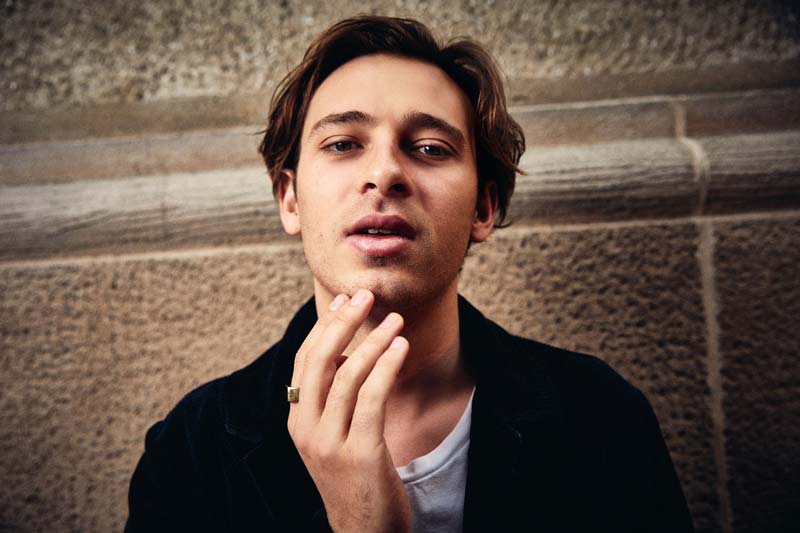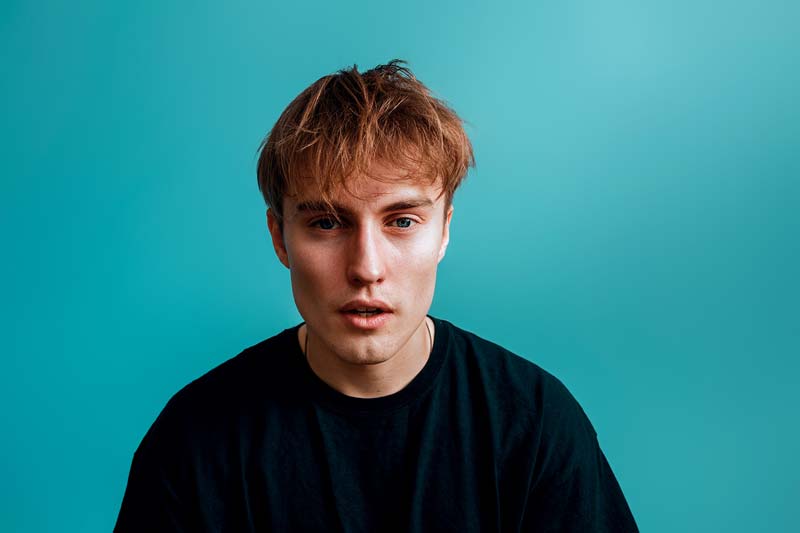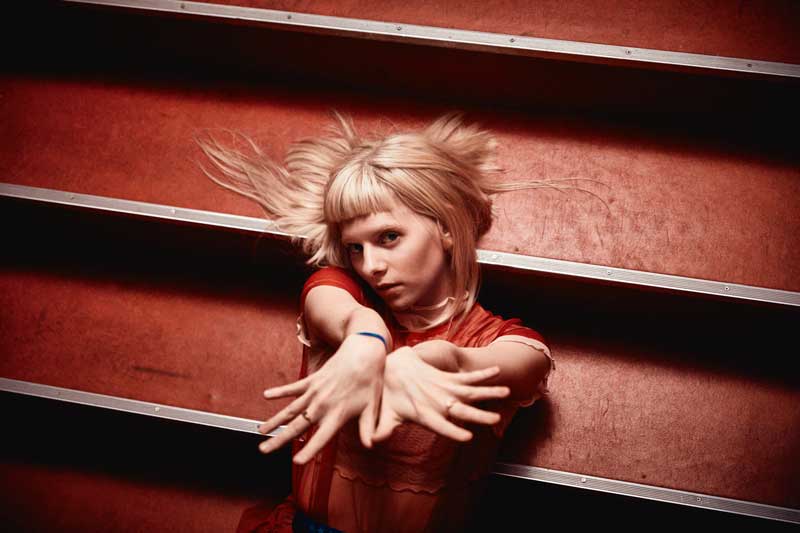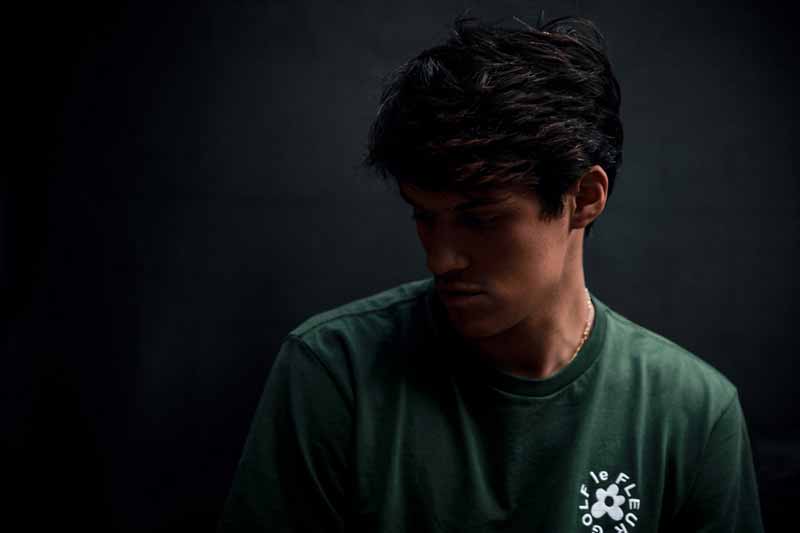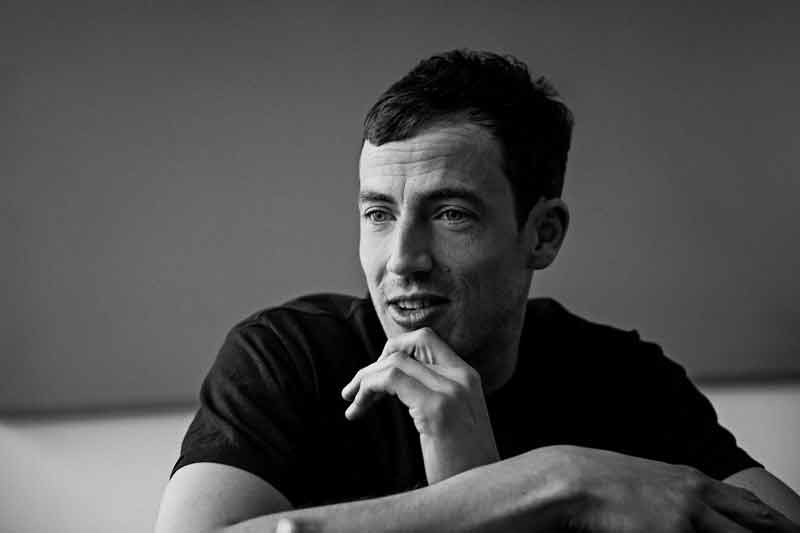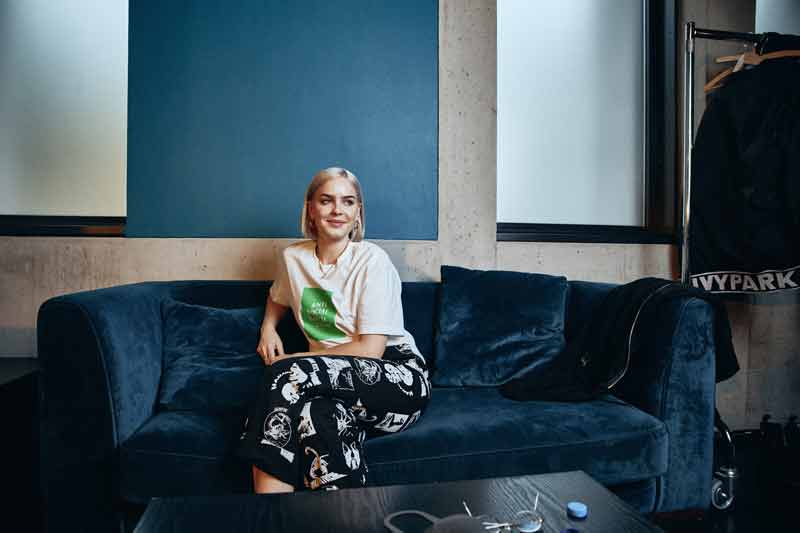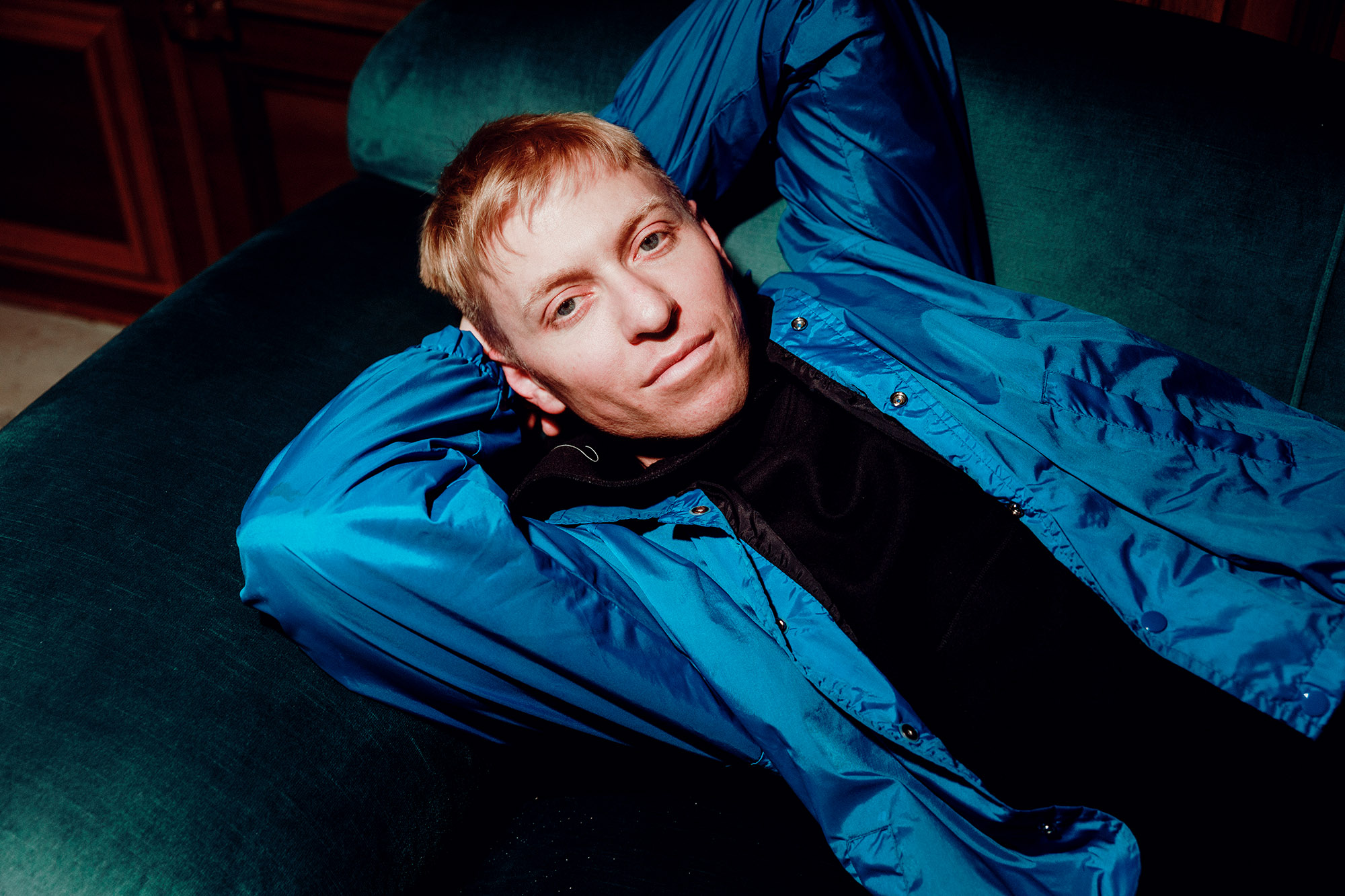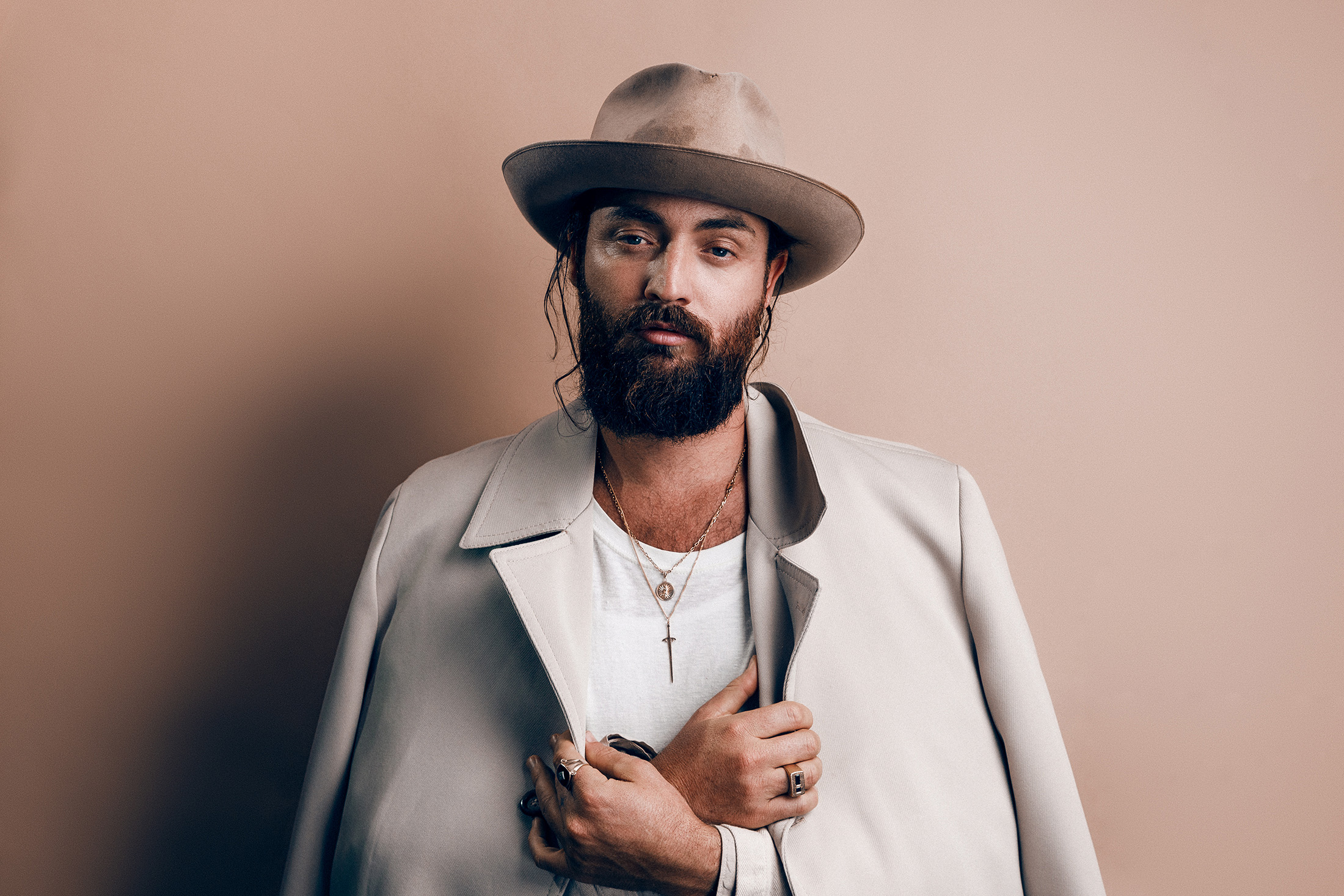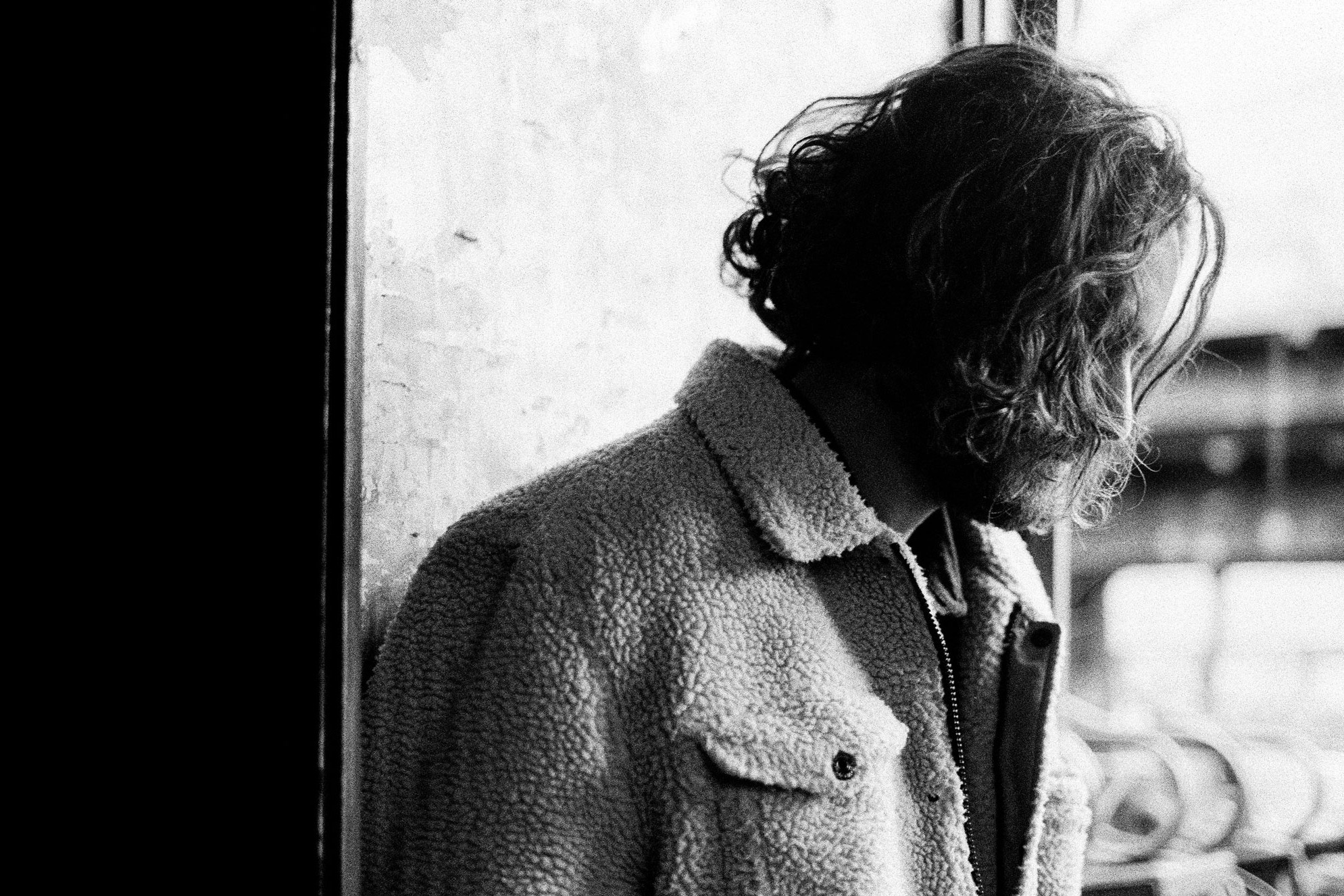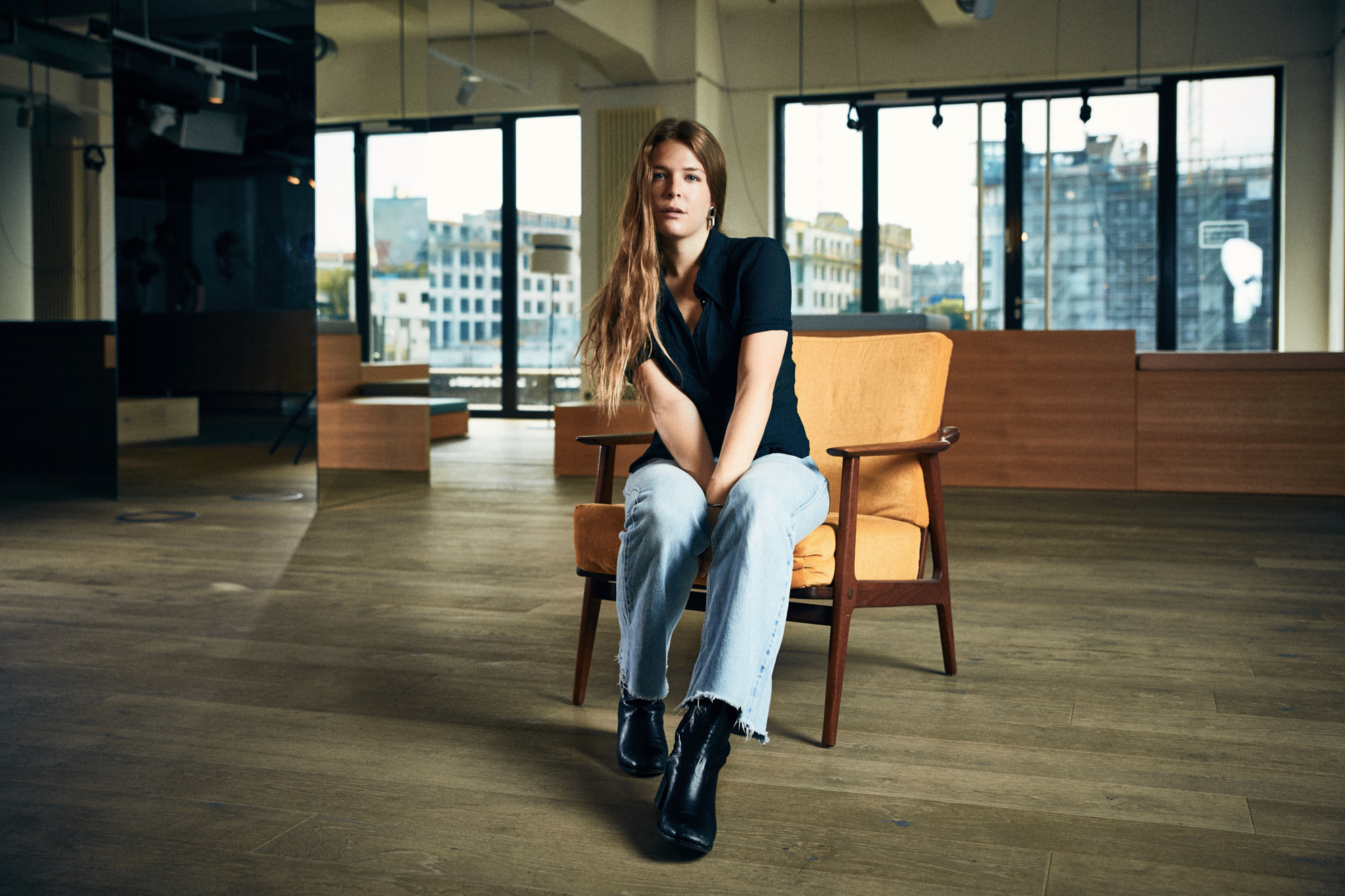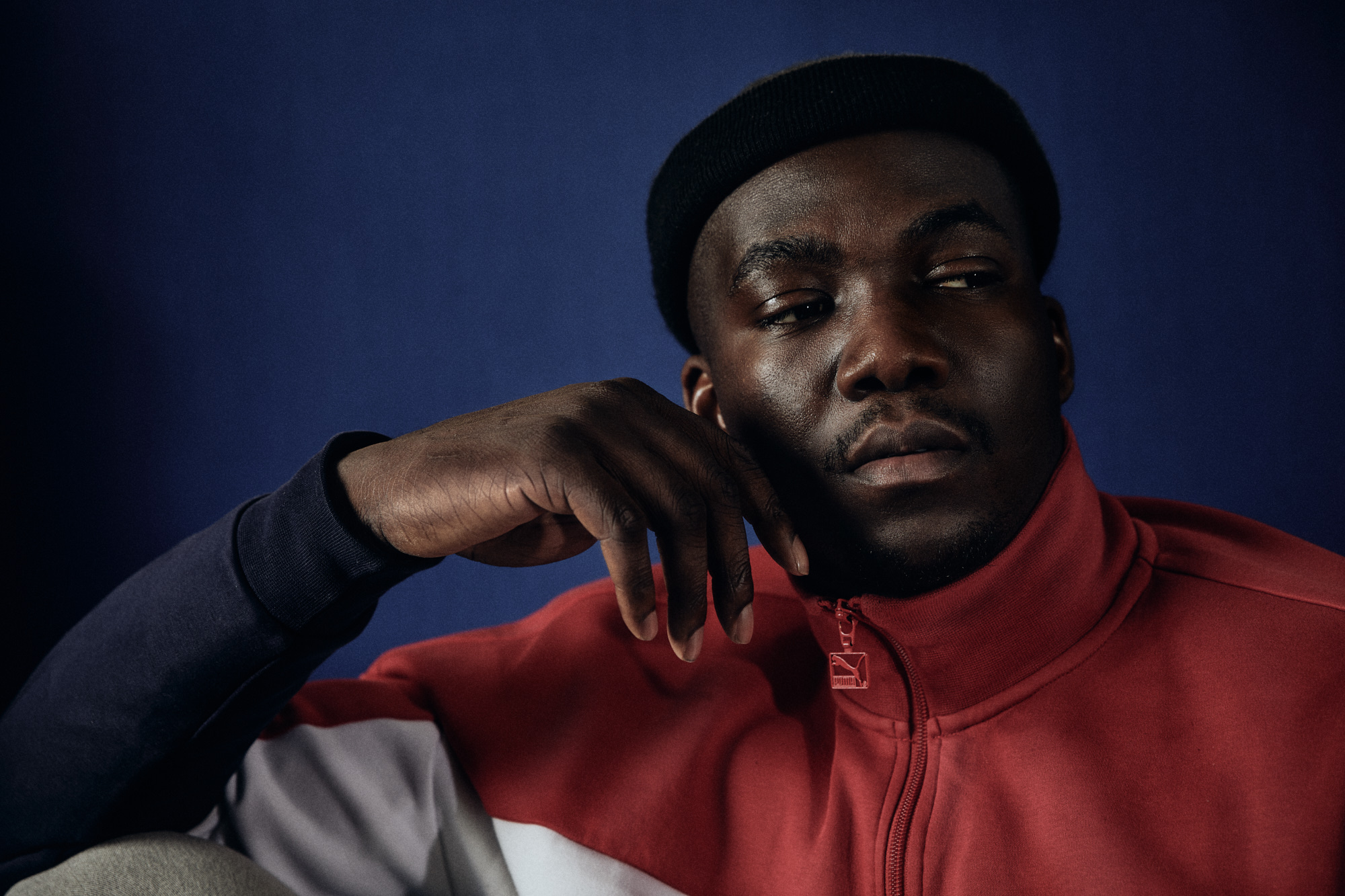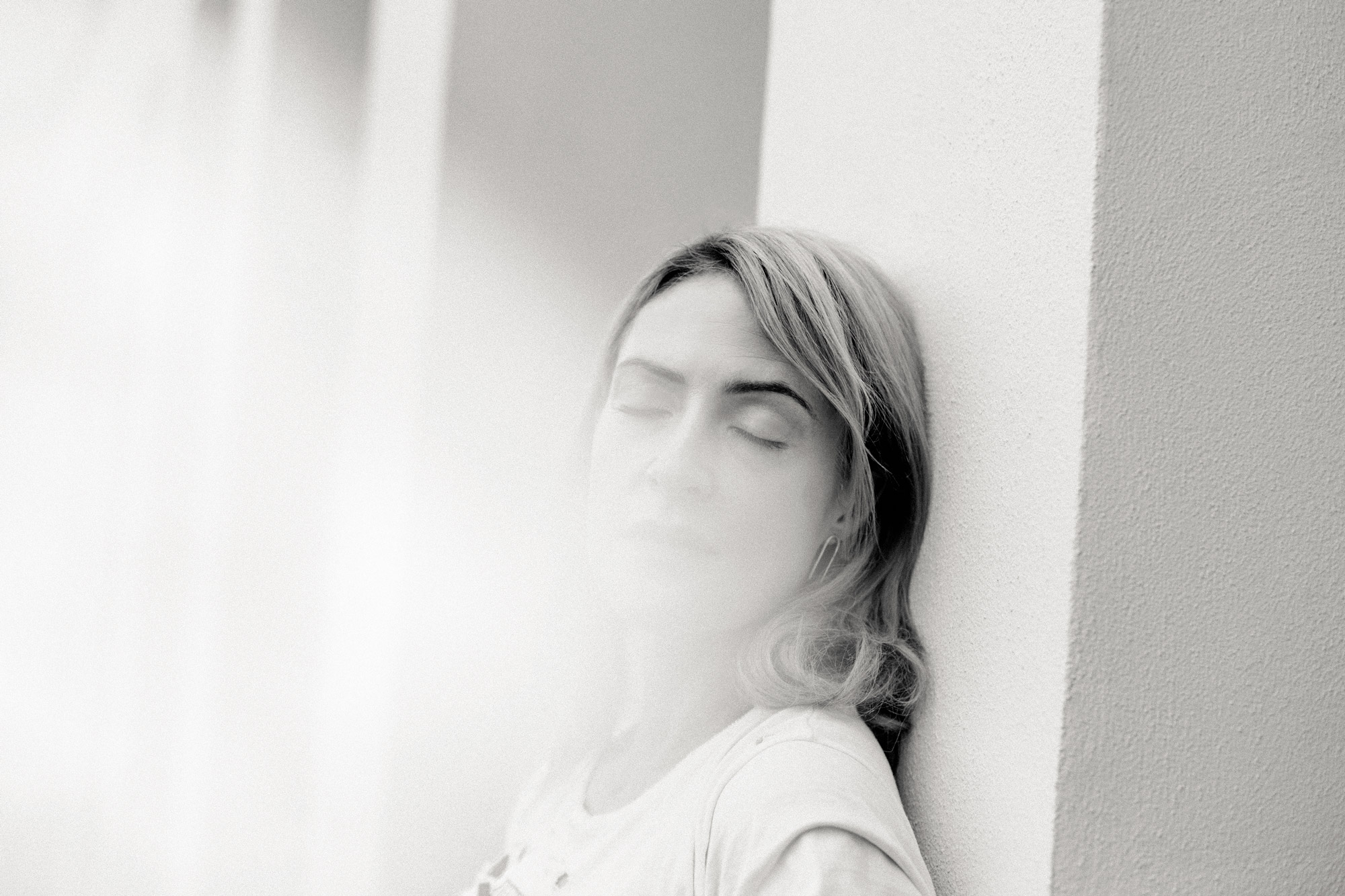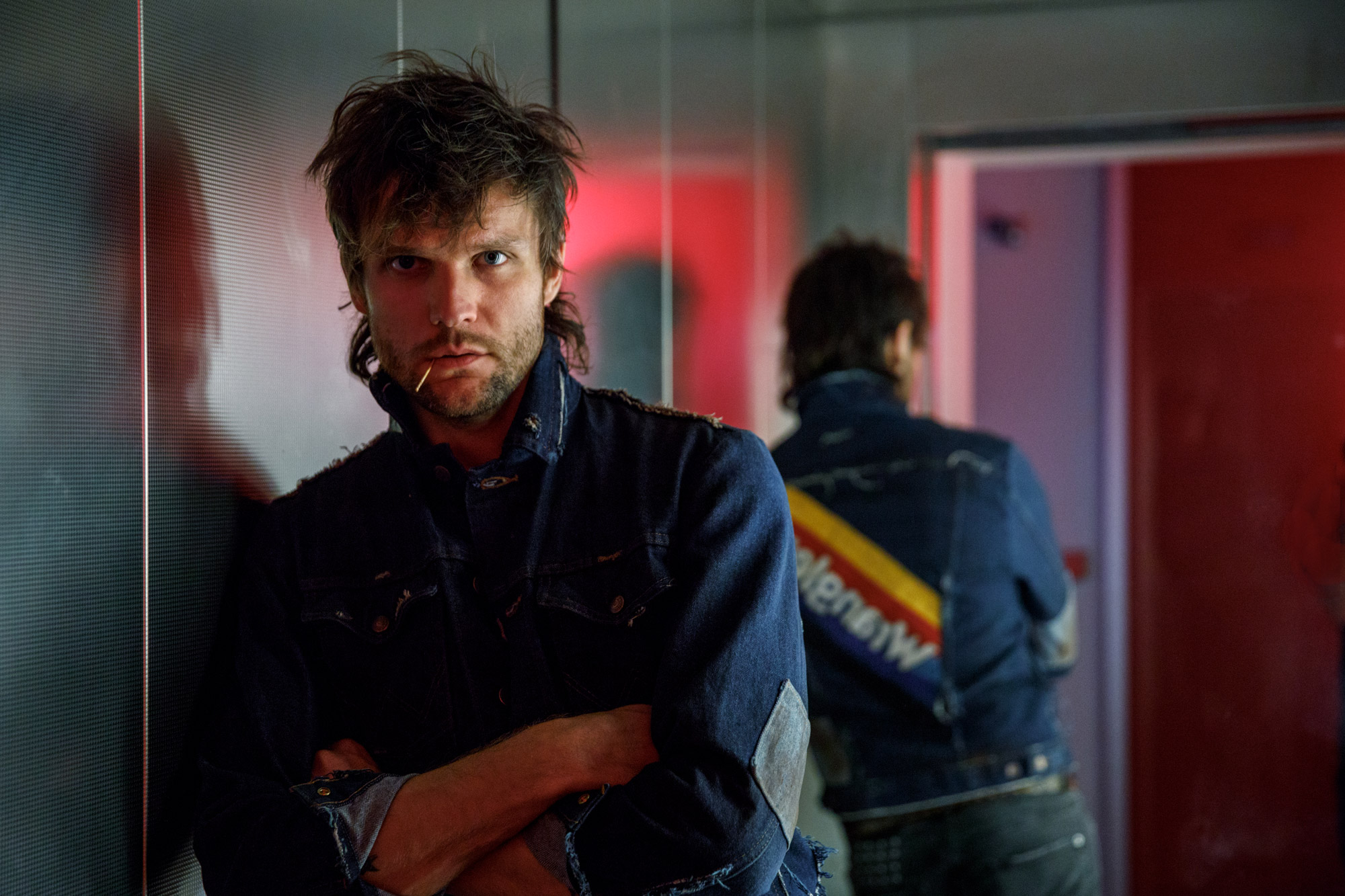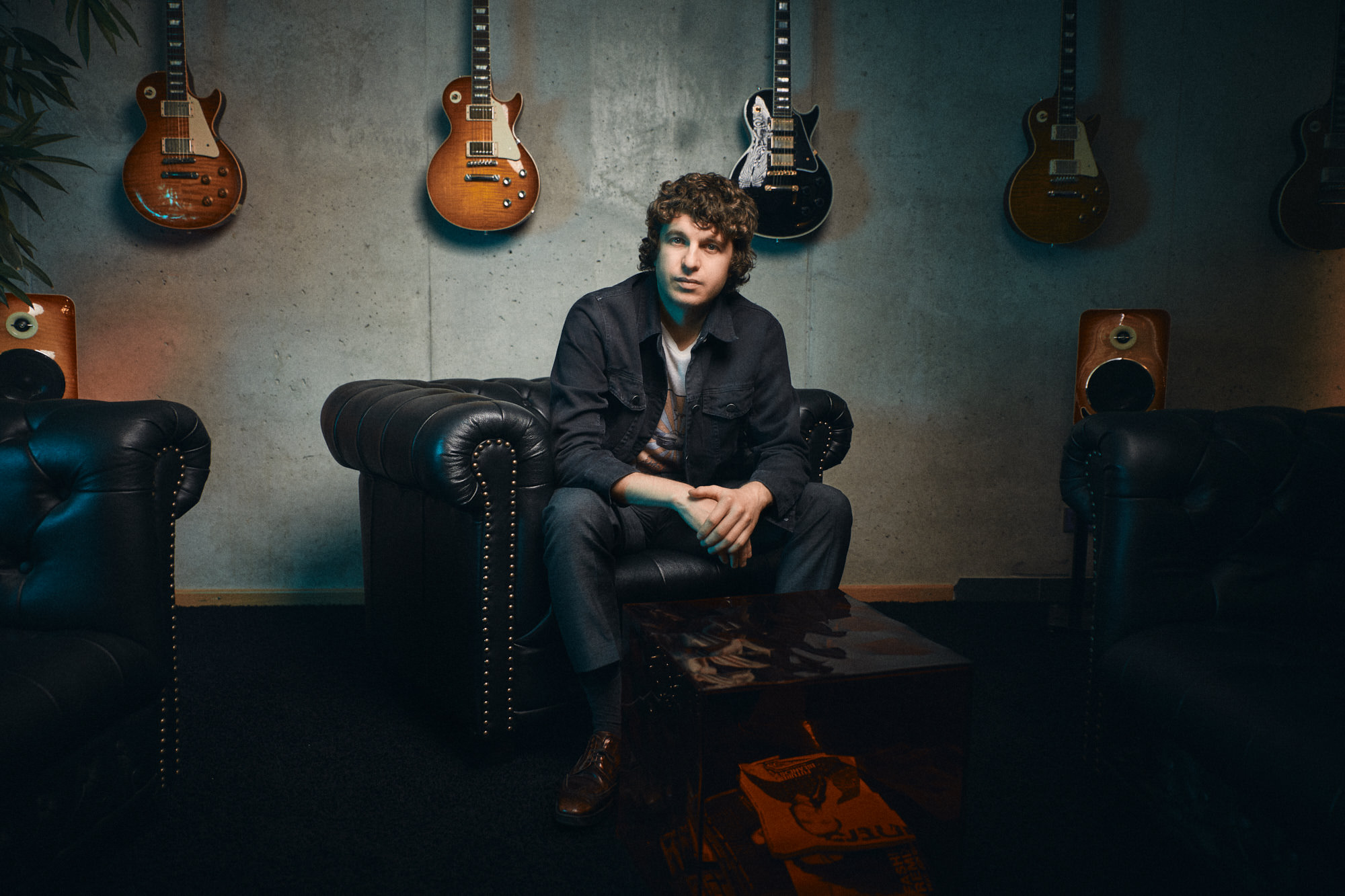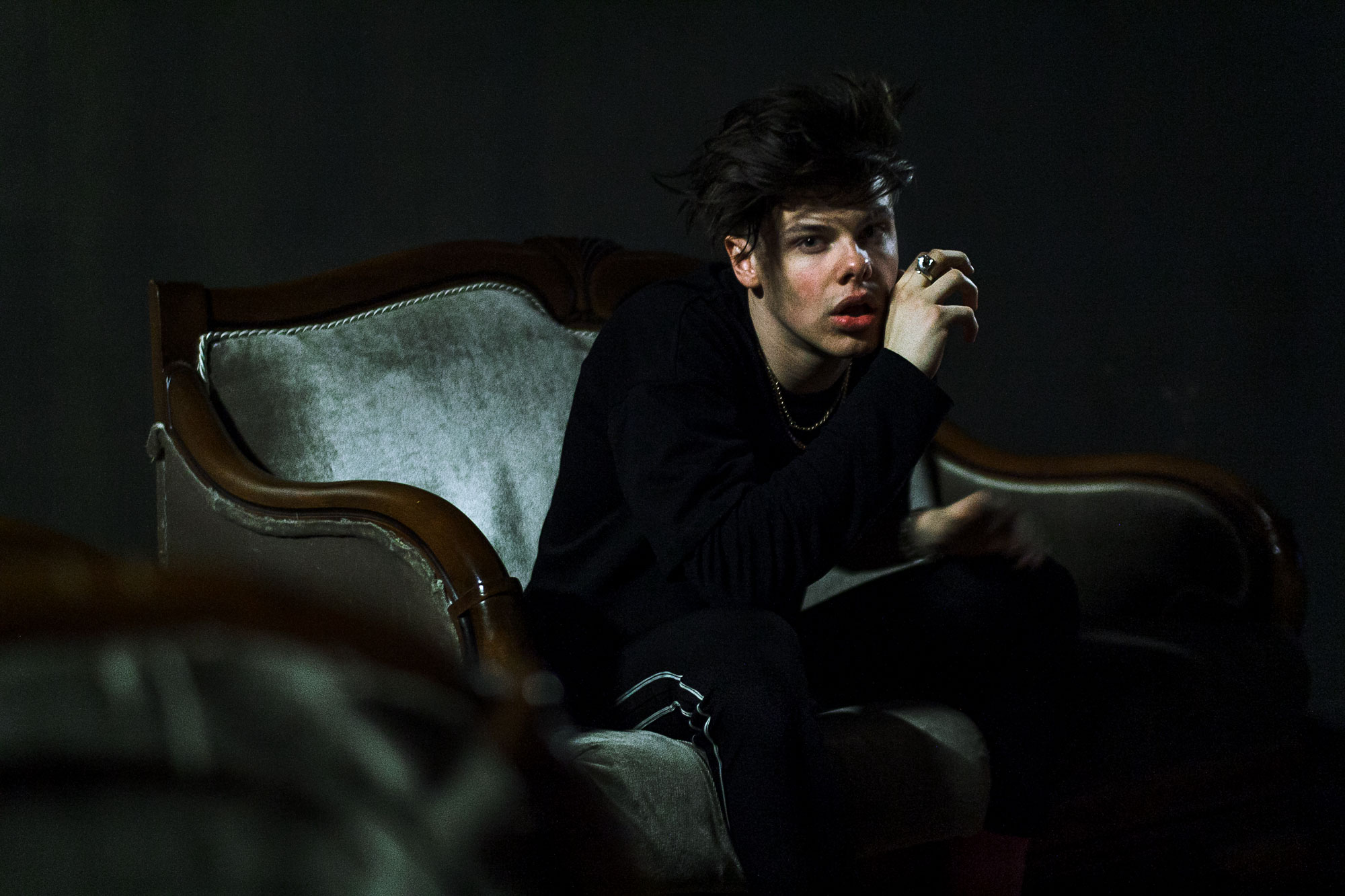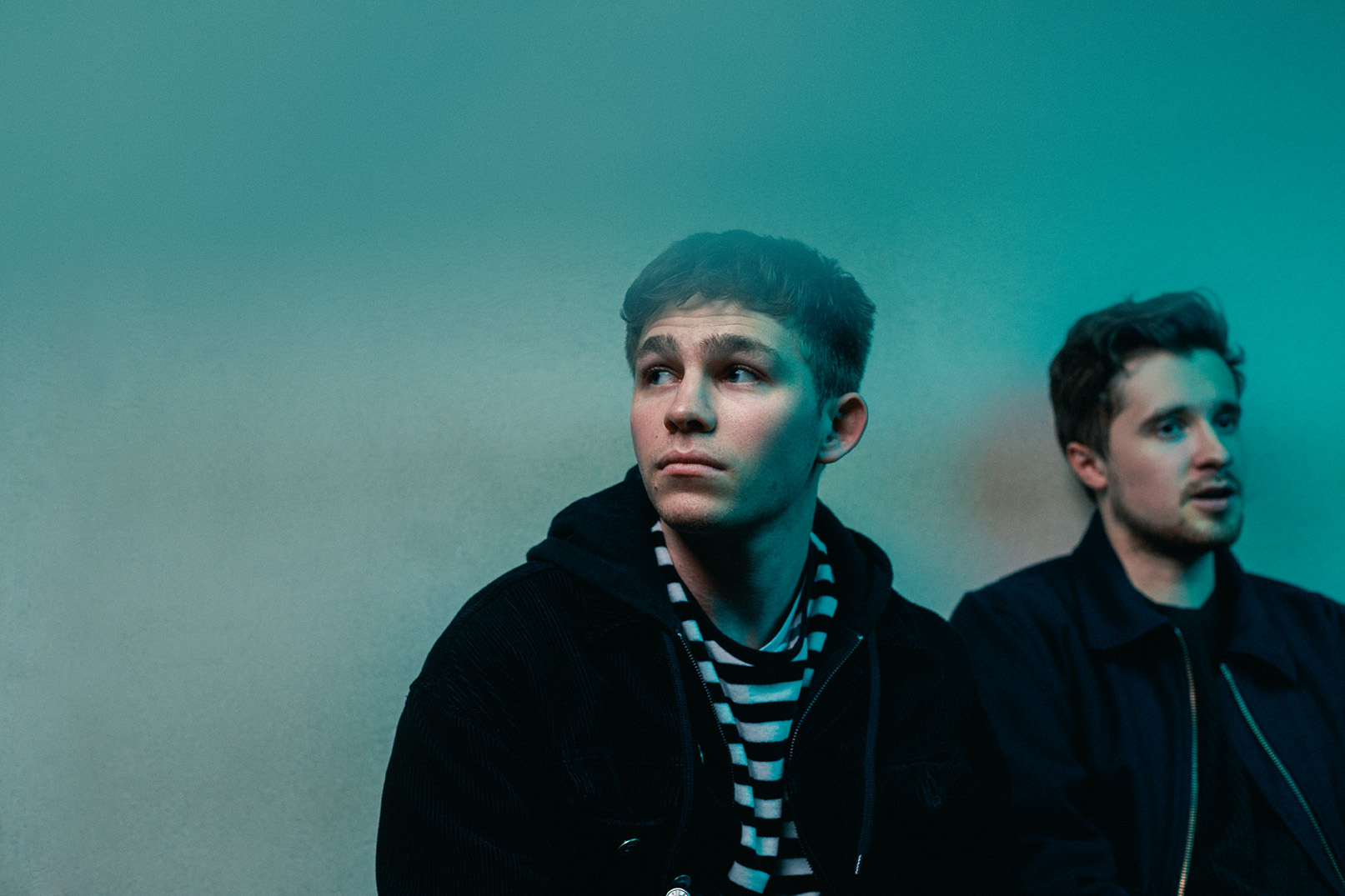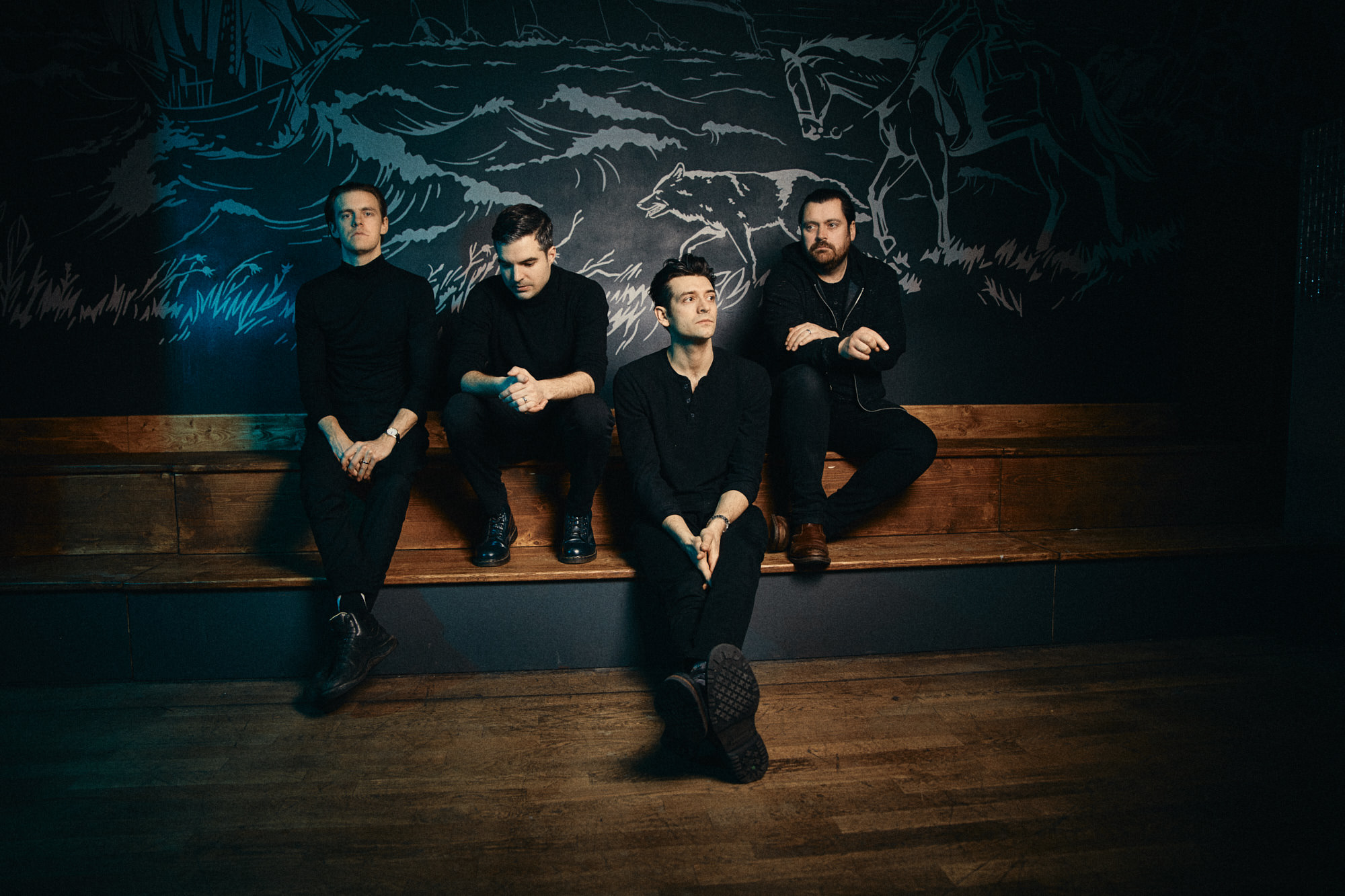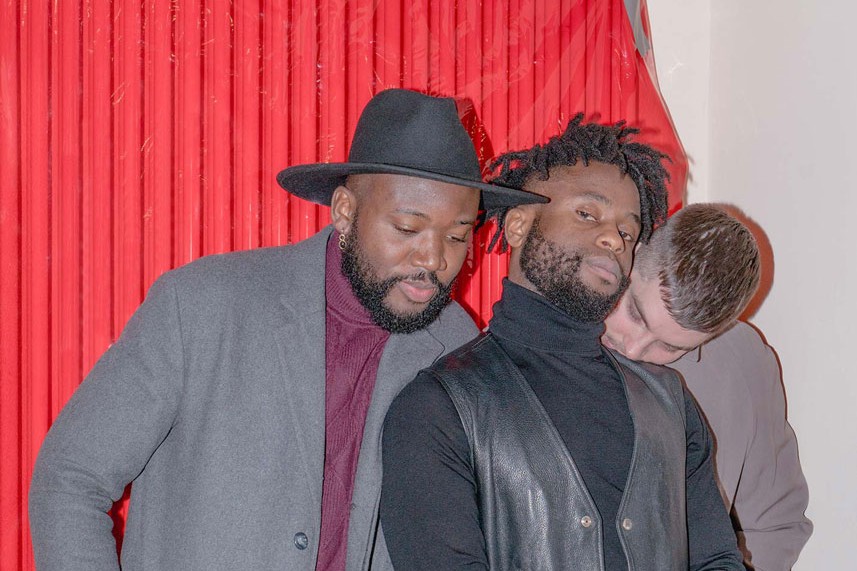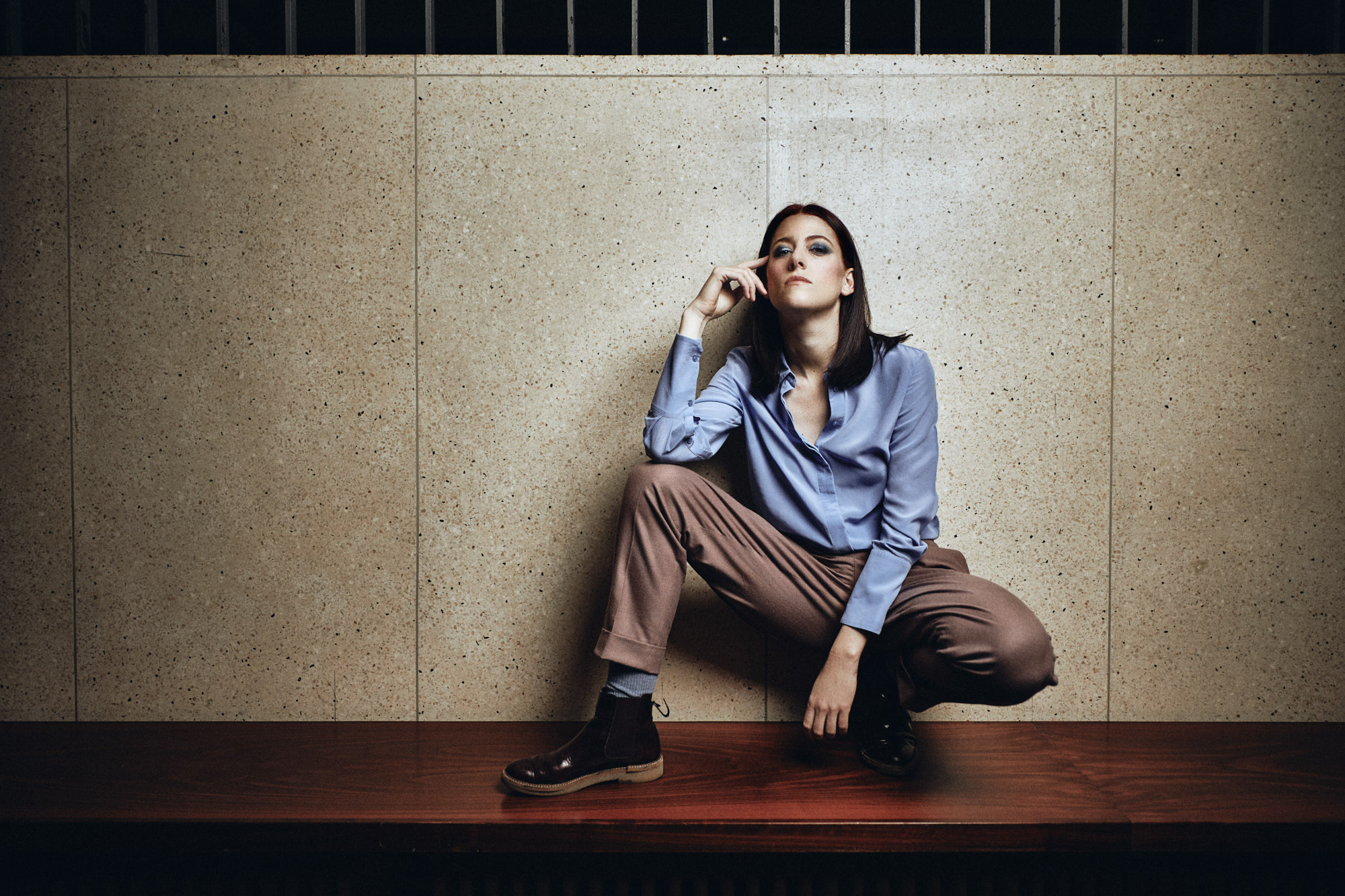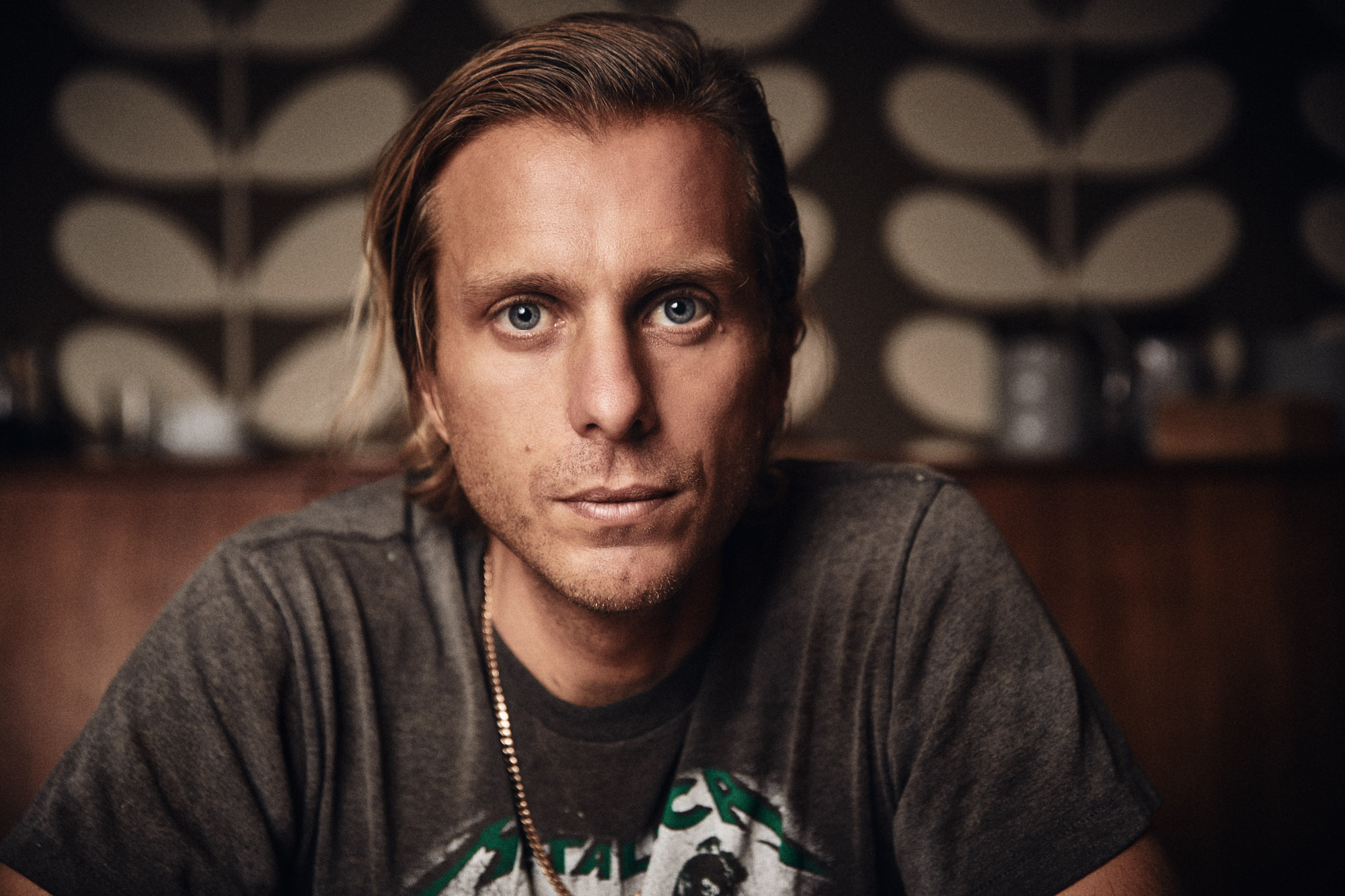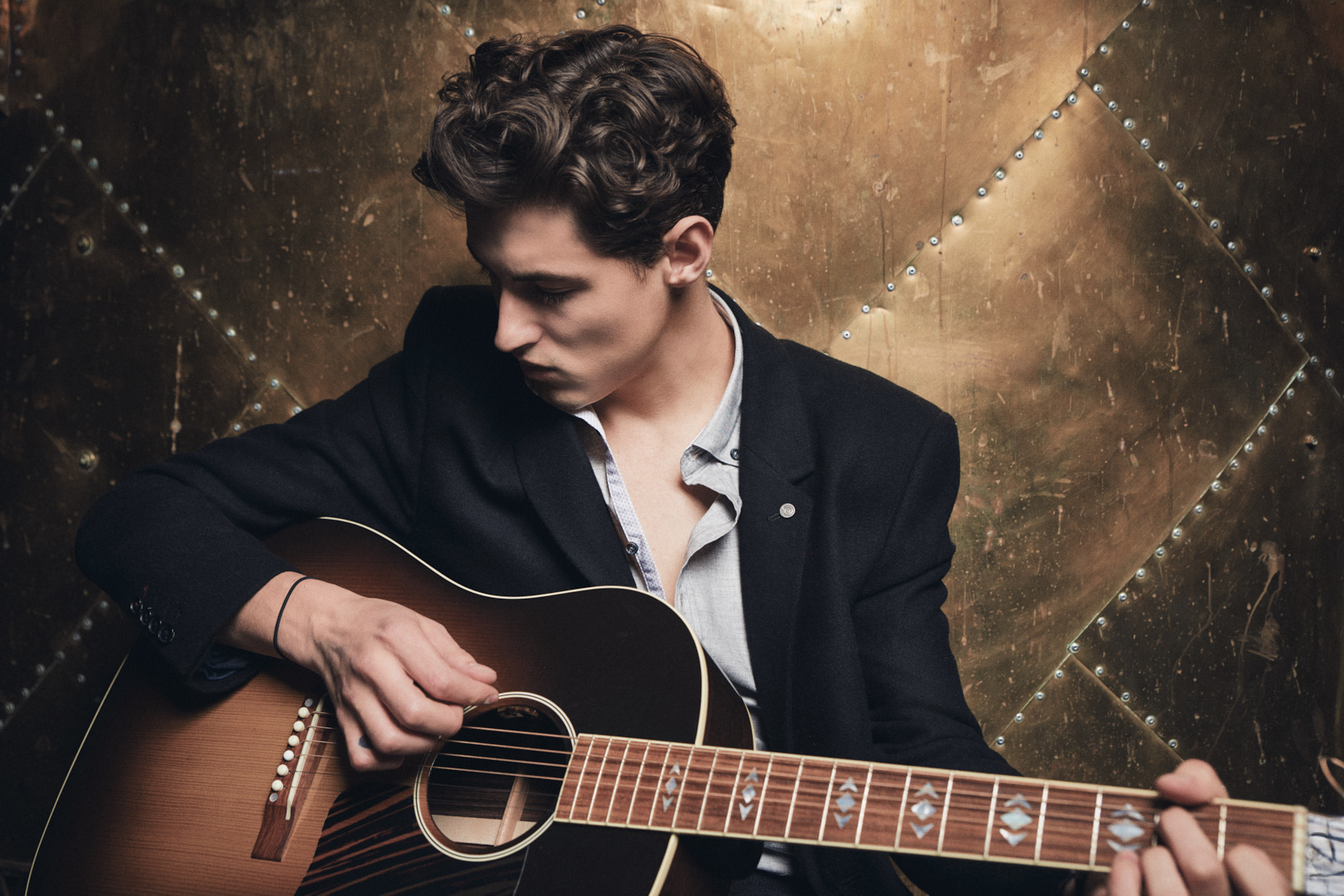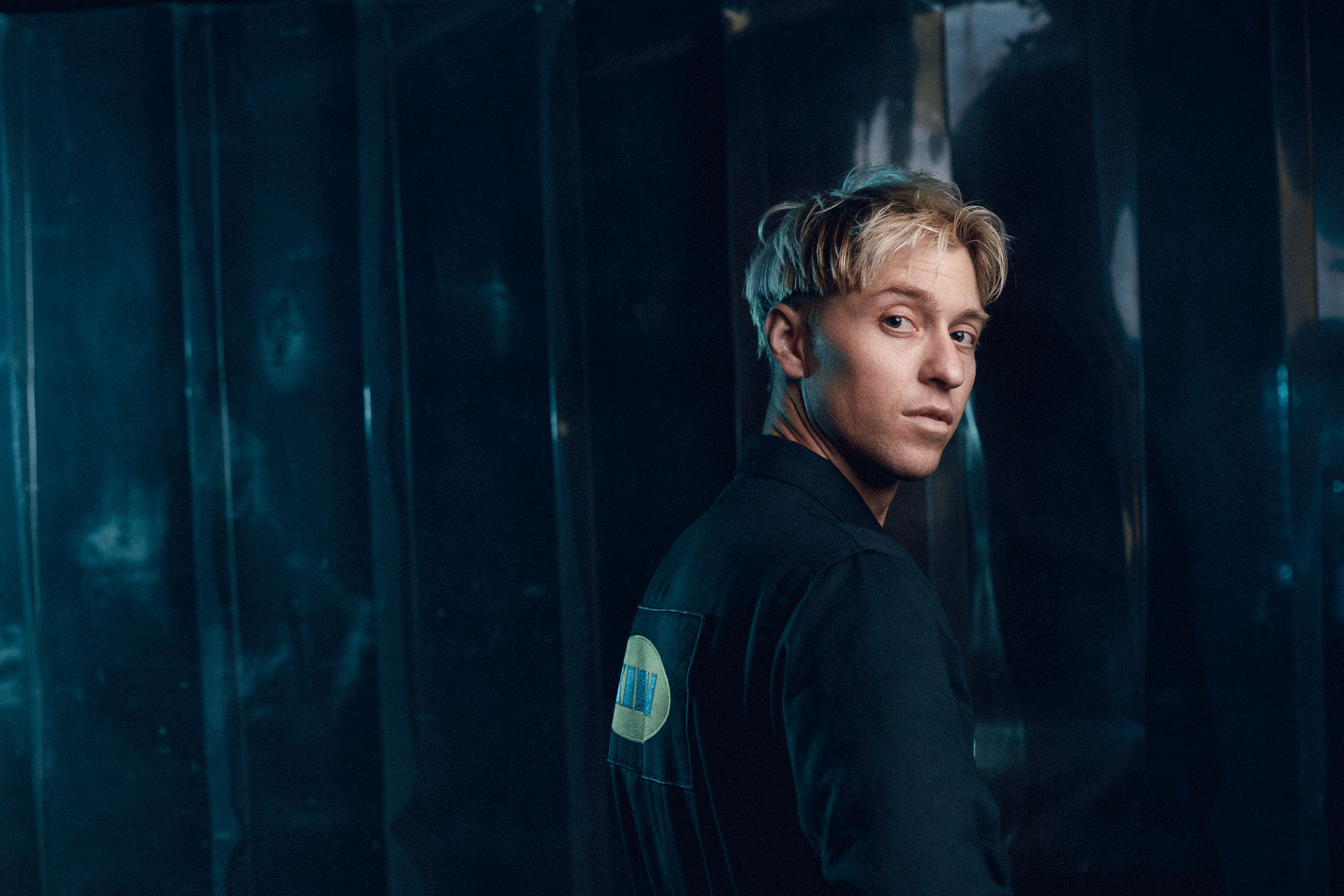Interview — Joesef
A Sense for Community
With his second EP »Does it Make You Feel Good,« Scottish singer Joesef has released a soulful and intimate piece of music—once again. The 25-year-old musician talks with us about the essence of Glasgow, the benefit of sadness in music, and what kids shouldn’t learn from him.
13. November 2020 — MYP N° 30 »Community« — Interview & text: Jonas Meyer, Photography: Maximilian König
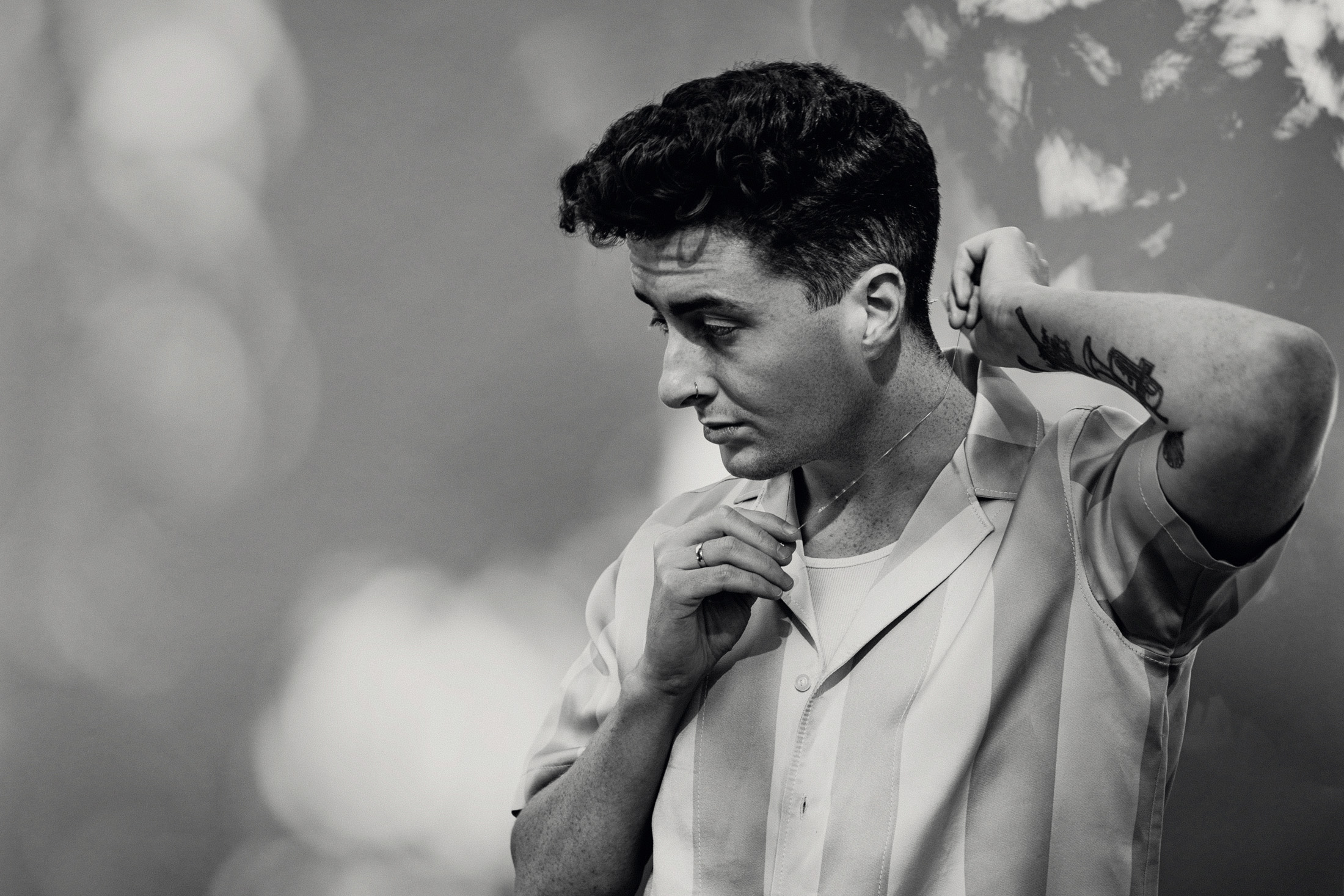
Visiting Glasgow for the very first time in your life can be a very strange experience. People there are incredibly friendly and not so easily bothered, an abrupt change for those who are—at least in their own hometowns—used to a harsh tone and rushed attitude (we won’t name any cities in particular).
Glaswegians care in a calm but obliging way: about friends and strangers, guests and family, young and old. They are a sometimes odd yet open-minded community, with a good sense for the common good, and for music.
One of the latest, most noteworthy children of Glasgow is Joesef, a 25-year-young musician now based in London. His soulful songs sound like he has already lived a very long life and seen the entire world, carrying all its pain on his tongue. But he only released his first EP last year, “Play Me Something Nice,” and he has the habit of producing all his music from his bedroom.
But what does this mean in times when an American presidential candidate manages his election campaign from his basement? And students around the globe try to change the world from their childhood bedrooms, not just on Fridays? Joesef and his audience came together through social media—and it seems that this won’t be a short-term relationship.
A few days ago, the warm-hearted but somewhat shy singer released his second EP, “Does it Make You Feel Good.” We meet him for an interview on a sunny autumn day in Friedrichshain—a Berlin district with also a special tone and attitude, by the way.
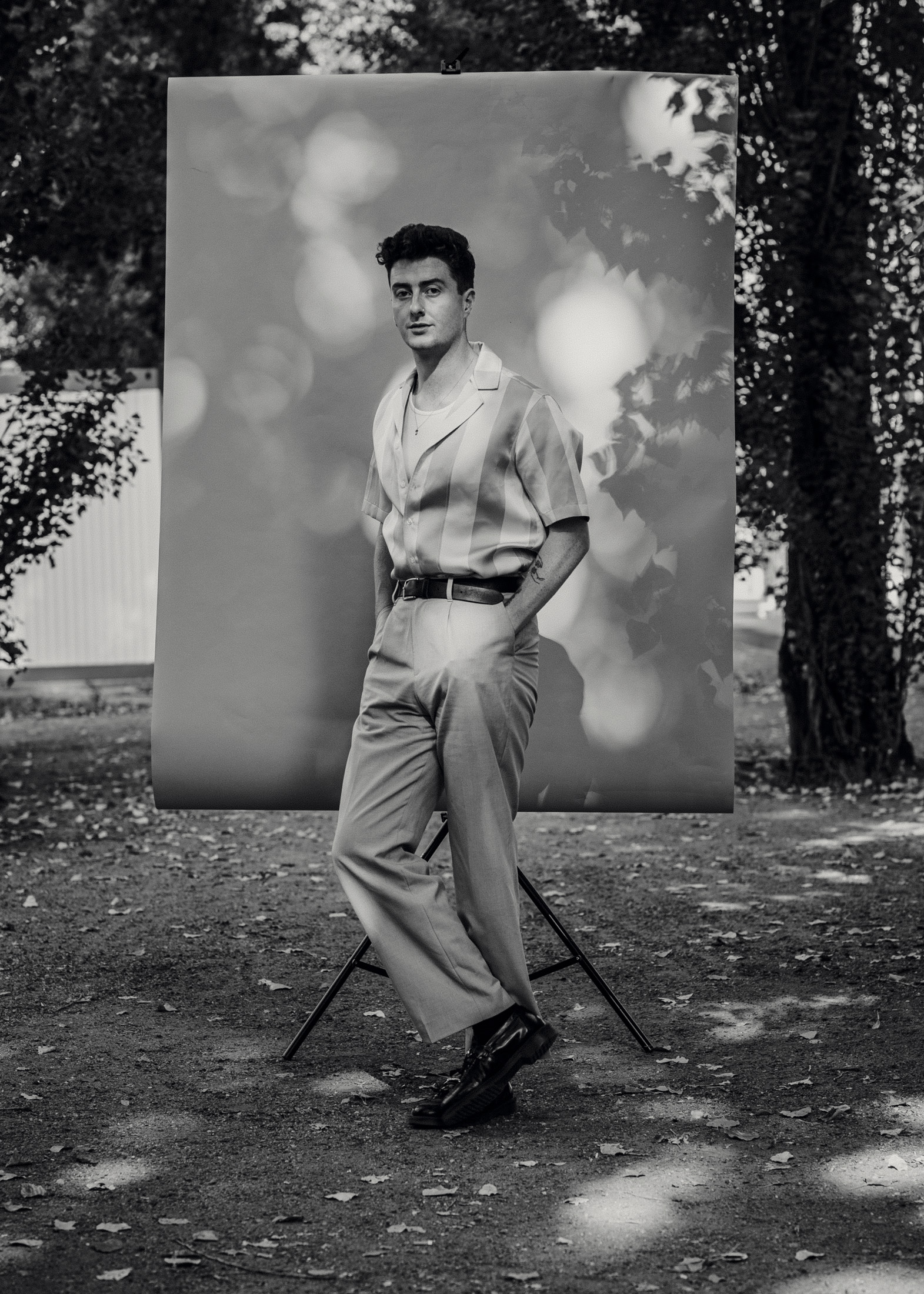
»In a bad situation, there can always be something good, even if it's just a song.«
MYP Magazine:
People like to describe you as a “sadboy.” Is that a title you can relate to? Or is it something that annoys you more and more?
Joesef:
I feel that this word is something that was mentioned in the past—and it kind of stuck. But it doesn’t bother me, honestly. It’s just that people are more or less surprised when they meet me because they expected I was sad as fuck. So, I think it’s kind of funny.
MYP Magazine:
But I suspect that even you feel sad from time to time…
Joesef:
Aye!
MYP Magazine:
What is the benefit of an emotion like sadness in terms of being creative and writing a song?
Joesef:
Sadness and loneliness are the worst emotions ever, they make you feel you’re the only person in the world. But they are also kind of unifying in terms of music. If you can hear yourself in a song and you can relate to that, you feel a little less alone. That’s the positive aspect of it. In a bad situation, there can always be something good, even if it’s just a song.
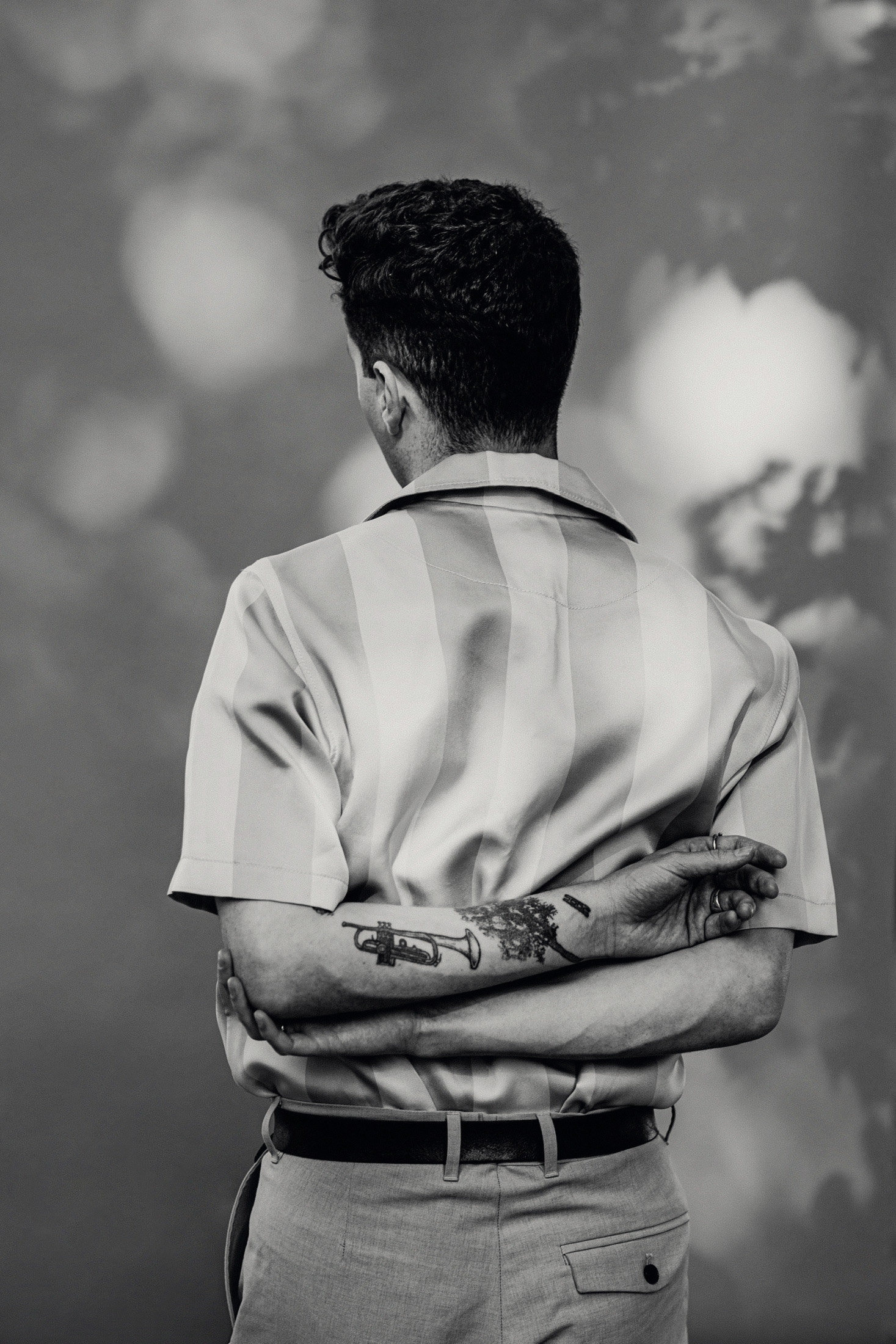
»Glaswegians can smell bullshit. That’s what made me be more honest to myself and my mates.«
MYP Magazine:
I personally have a very touristy, romanticized image of Glasgow. How do you see your hometown yourself?
Joesef:
I’m from the East End of Glasgow which is probably the roughest part of the city…
MYP Magazine:
… a “concrete jungle” as you said in another interview.
Joesef (smiles):
Yes. But even at the East End of Glasgow, everybody is so welcoming and has a strong sense of community. You can stand at a bus stop and the person next to you will speak to you, just ask how you’re doing and what you’re up to. I think that’s something you can’t get anywhere else—this city is like my favorite place in the world! At some point I’ll go back there, have my cats and raise a family. I’m born in Glasgow and I definitely will die in Glasgow. The weather is fucking shit, but the people are amazing.
MYP Magazine:
How did this environment support you in your development as an artist?
Joesef:
People in Glasgow are all working class. They teach you that you need to put yourself forward because you usually don’t get a second chance. I think that’s the reason why I’ve become a very passionate do-or-die person. And besides that, Glaswegians can smell bullshit. That’s what made me be more honest to myself and my mates.
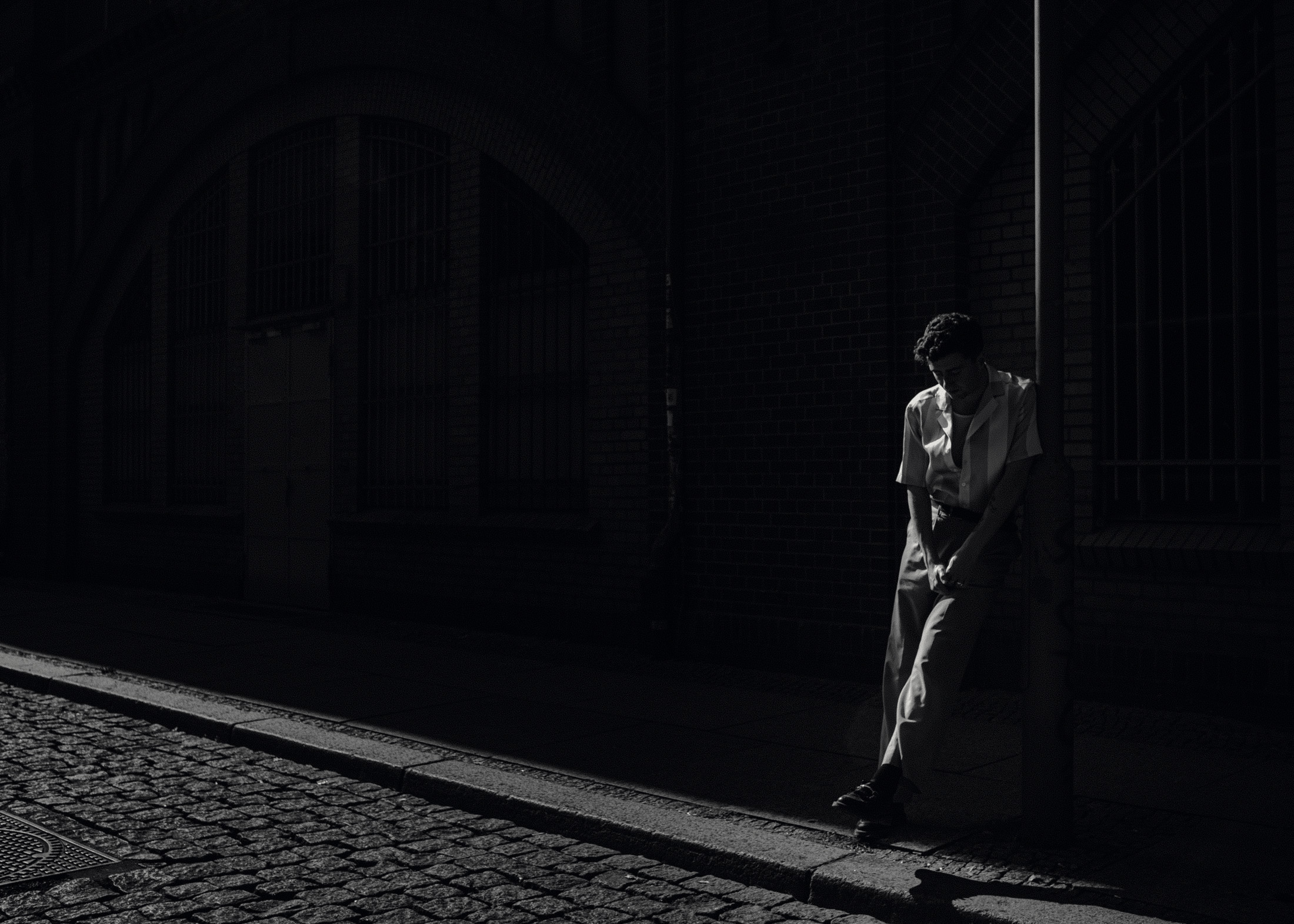
»When I was really young, I remember that being gay was a bad word, even in Glasgow.«
MYP Magazine:
You are very open about your sexuality, personally and in your music. Imagine if you had grown up in Glasgow a few decades earlier–or today in Russia, for example–at a time or in a place where this kind of openness would not be possible. Do you think you would have become a musician at all?
Joesef:
If I had lived in the 80s, for example, I think I would have become a singer anyway. But due to the fact that people like George Michael were absolutely hell-of frightened by the press for being gay and stuff, it would have made me think twice of being totally honest in my music and opening up like I obviously do today. That would definitely have caused a serious backlash to my career.
I’m so lucky to be born in this time, my generation seems to be very progressive. But when I was really young, I remember that being gay was a bad word, even in Glasgow.
MYP Magazine:
Do you feel kind of a responsibility enjoying this freedom?
Joesef:
Nah, I don’t really feel responsible, not actively. I’m just living my life and when anybody can see themselves in my music which makes them feel more comfortable, that can eventually be a good thing.
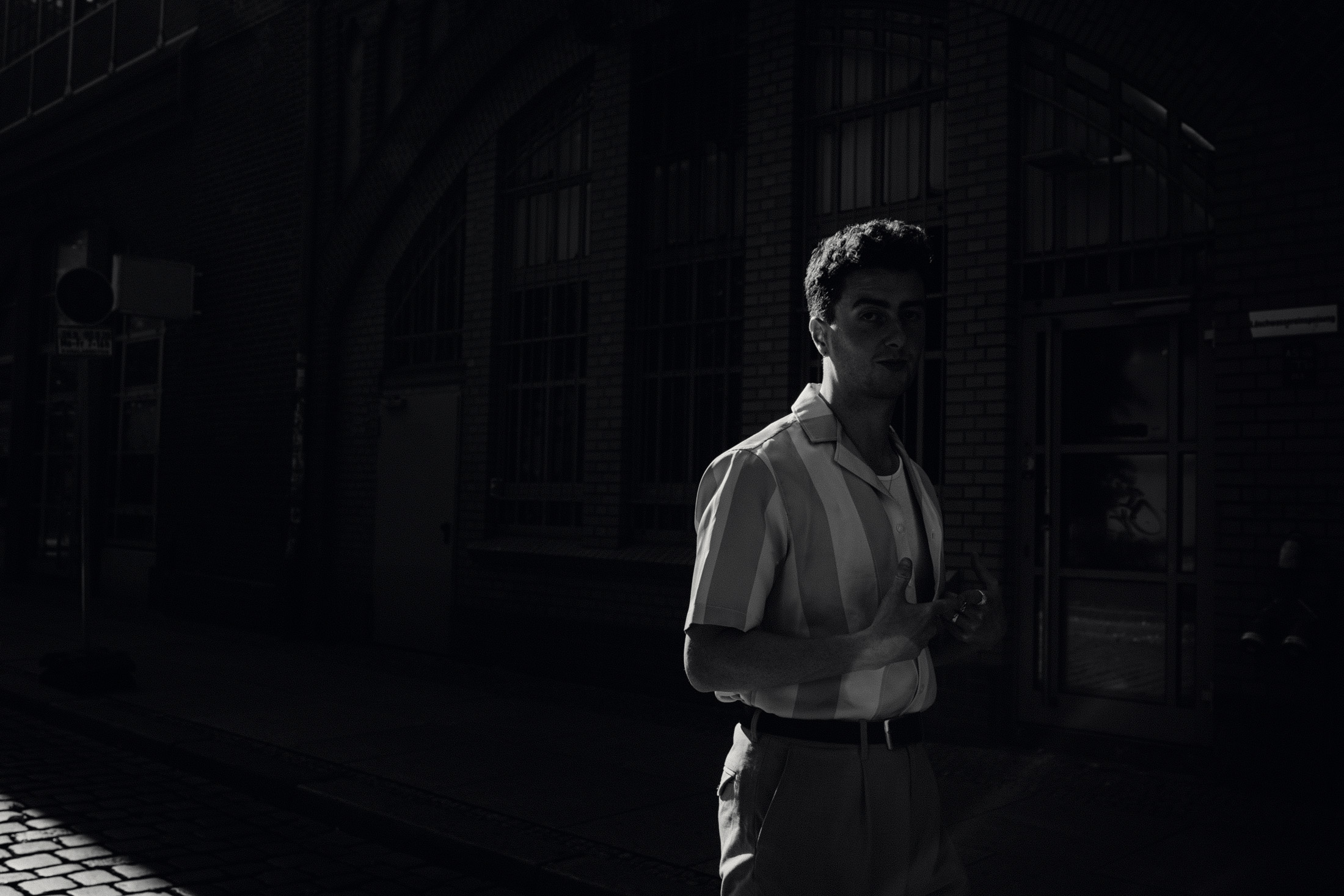
»When there’s just one guy who can see himself in me and my life, that’s class!«
MYP Magazine:
What can queer kids around the world learn from you?
Joesef (smiles):
When I was young, I’ve never seen someone like me from a housing estate who was talking about boys and stuff all the time. When there’s just one guy who can see himself in me and my life, that’s class!
MYP Magazine:
And what should kids better not learn from you?
Joesef:
I mean, I definitely drink too much. So, don’t get drunk, kids! Besides that, I’m a very standard guy.
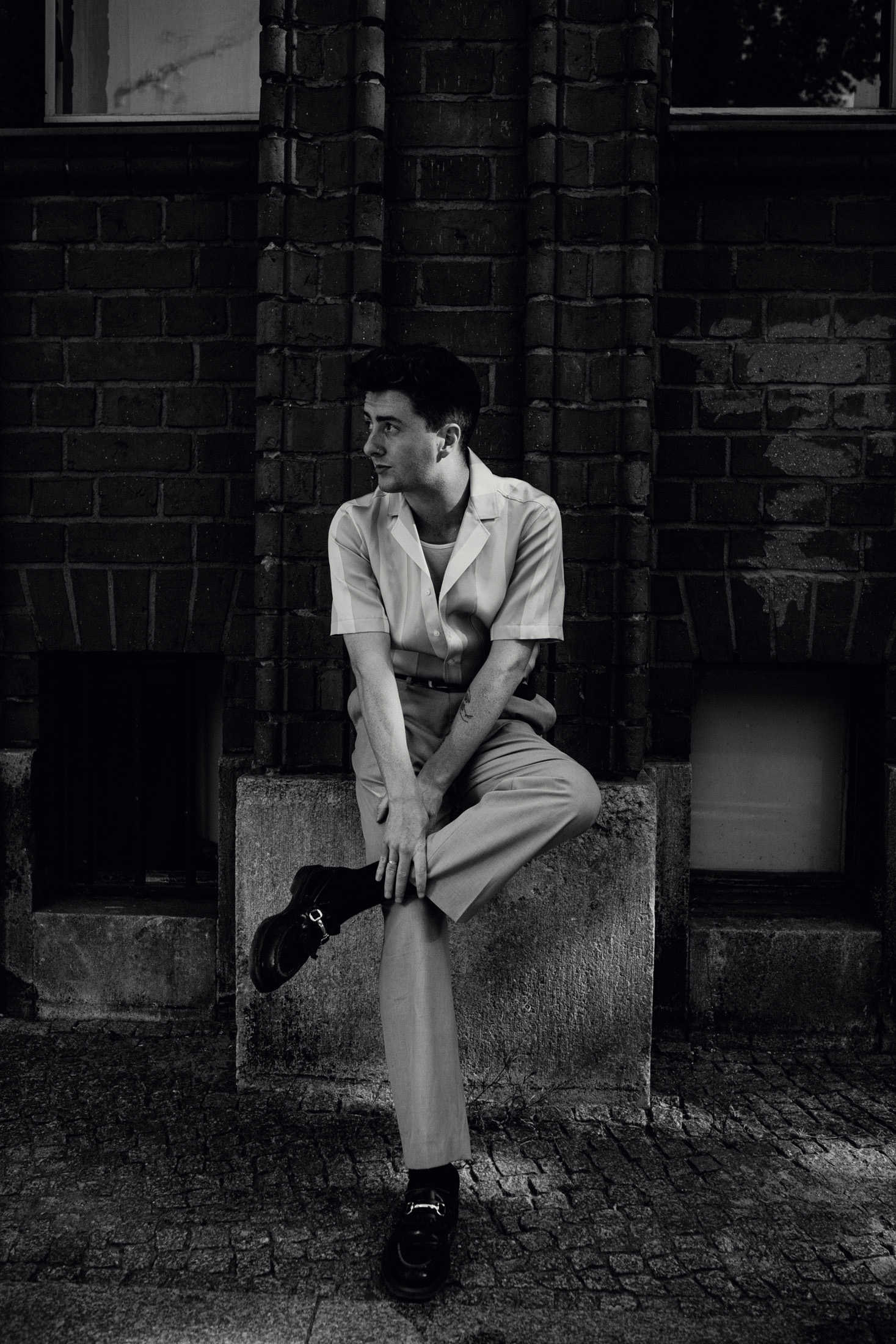
»I’m not that kind of person who tells people my secrets.«
MYP Magazine:
Your music is very personal and emotional—something a lot of people can relate to. At the same time, you’re a person who describes yourself as being uncomfortable with sharing personal aspects of your life. How did you resolve this contradiction?
Joesef (laughs):
It’s very weird. I’m actually not that kind of person who tells people my secrets. But when you put a beat and a melody behind it, it somehow seems a lot easier to let it out. I really don’t know why.
MYP Magazine:
You’ve just released your new EP, “Does it Make You Feel Good.” In an interview with Dork magazine, you said that if your first EP, “Play Me Something Nice,” felt more hopeful, the second one would be the “end game.” What exactly did you mean by that?
Joesef:
That statement is a bit nostalgic. I feel like I was a young boy in the first EP, it was all about my first relationship that eventually broke. It went so bad and was so frustrating and poisonous, it left both of us with pure anger. My hope was that, in the future, we would be able to sort things out. The second EP is written from a more grown perspective. I feel I know myself a bit better and I try to make sure that something like this never happens again… By the way, we’re together again, but just fuckin’ (smiles).
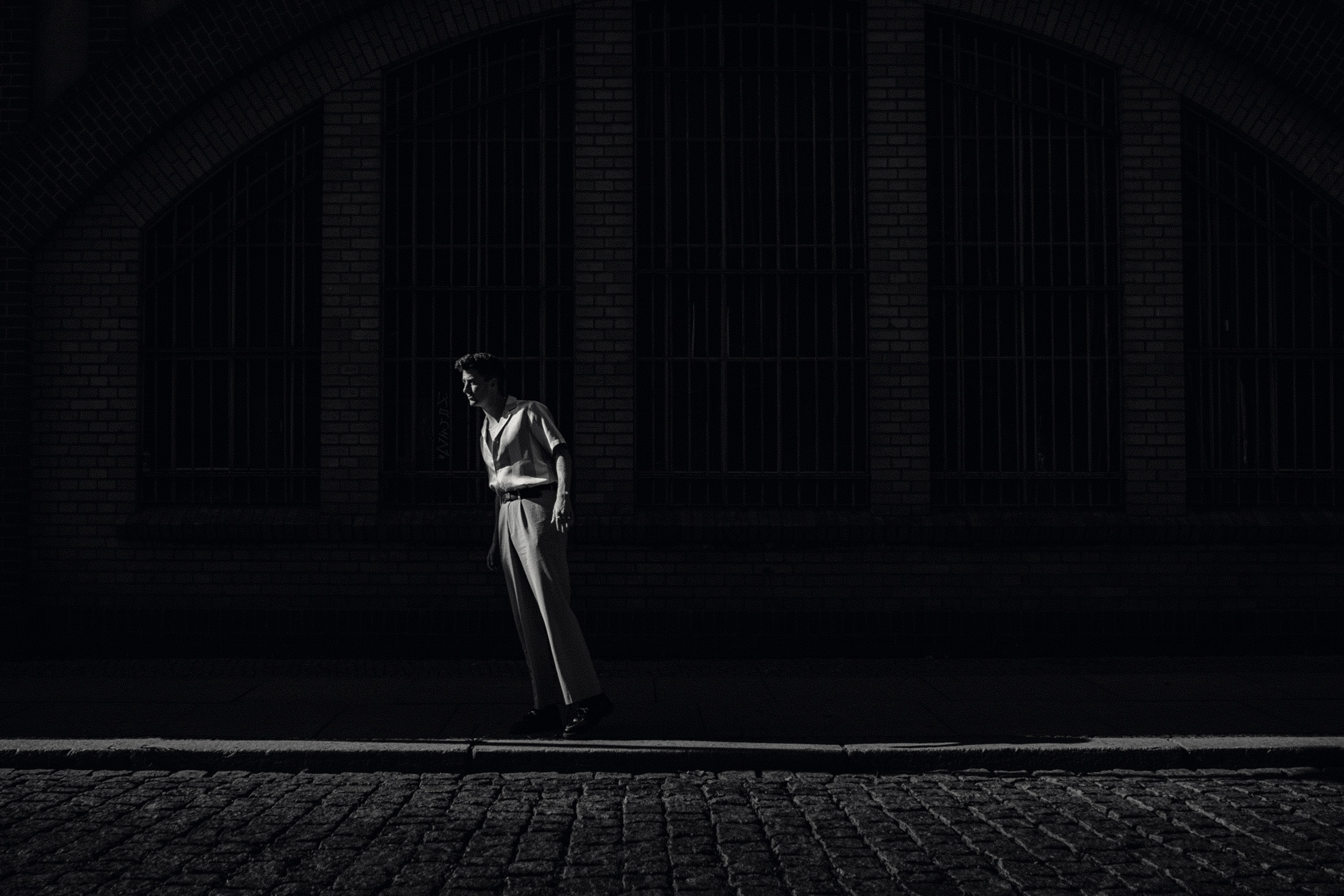
»When you’re growing up in the East End of Glasgow, you’re catching up on so much shit at a young age that you think this is normal.«
MYP Magazine:
You’re such a young person, but your music sounds like you’ve already lived a very long life and you’ve seen the entire world, carrying all its pain on your tongue. Have you ever wondered if you had lived a life before your current one?
Joesef:
I know that people used to say that I’m an old soul. But when you’re growing up in the East End of Glasgow, you’re catching up on so much shit at a young age that you think this is normal.
MYP Magazine:
Let’s stick with the present. At the moment, Joe Biden is campaigning from his basement, the Fridays for Future kids are trying to change the world from their childhood bedrooms, and you’re writing and producing your entire music more or less from your bed. Would you say your example is part of a new normal?
Joesef:
I am very lucky that I was always able to make music in my bedroom. This room is my office, that’s where I work. But I think it’s more of a funny accident than part of the so-called new normal in these times.
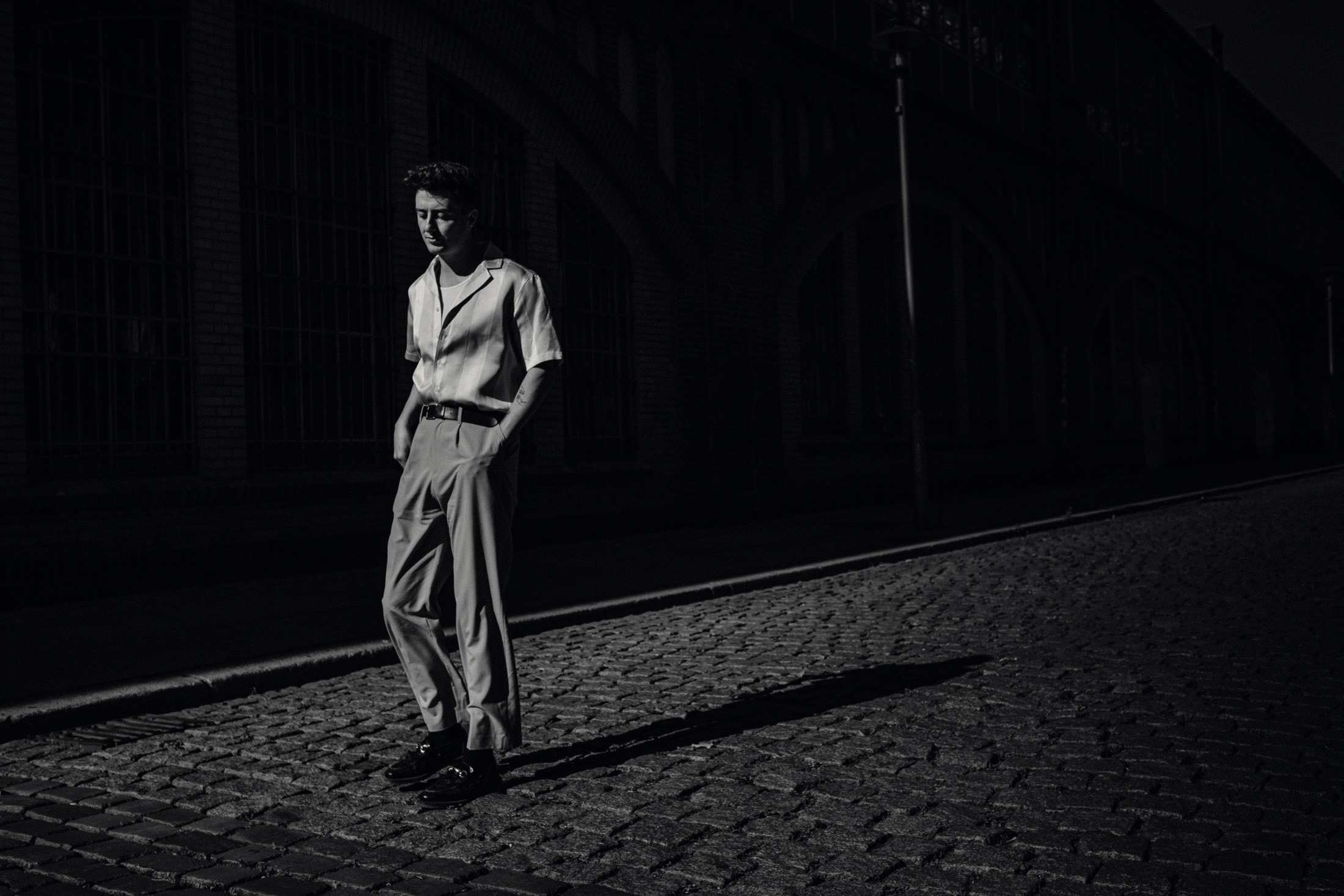
»You make less compromises when you’re by yourself.«
MYP Magazine:
Are you a loner when it comes to work matters?
Joesef:
I would say yes. You take more risks and make less compromises when you’re by yourself. You can do whatever you want, and I have to confess that I’m a control freak. But I think I’m now more open to cooperating than I was before.
MYP Magazine:
You’ve released two EPs now. Are you going to work on an album some day? Or do you feel that’s a relic from the old music world?
Joesef:
I’m such an album boy, I love albums! When I think of the music that has come to me all my life, it has always been albums. I feel like I caught my whole life in vinyl. I’m quite traditional in that sense, it’s such an emotional thing. So, I am definitely going to work on my own.
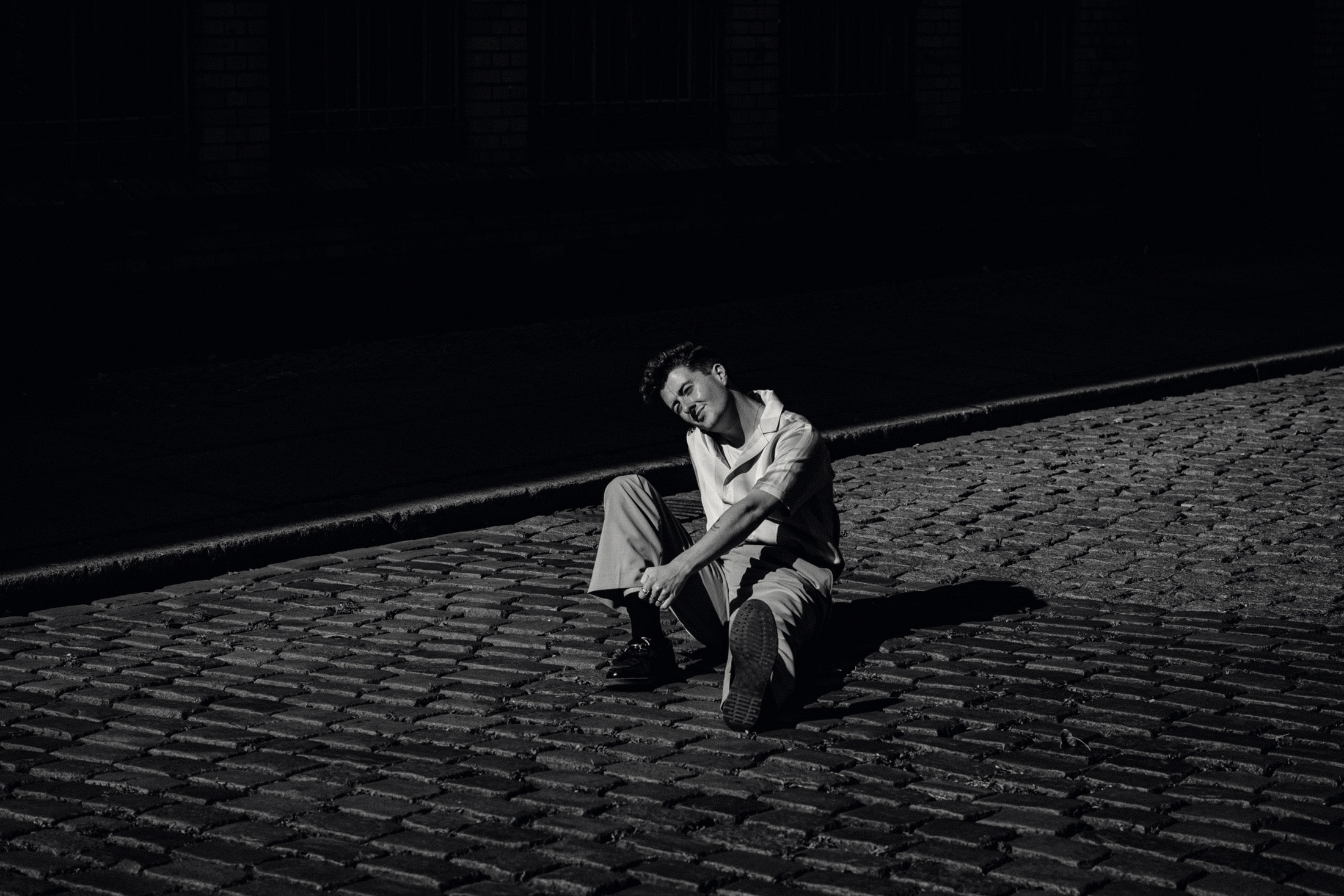
»I hope people can escape a little bit through my music when they get set back.«
MYP Magazine:
Speaking of emotions: What feelings could your new EP evoke in its listeners? What do you wish for?
Joesef:
I hope people can escape a little bit through my music when they get set back, that’s my goal.
MYP Magazine:
When you played your first gig ever at King Tut’s last year, it was sold out before you even released a single track. Does such an experience give you hope for the future, especially in such strange times like we’re facing right now?
Joesef:
I always have hope for the future. This shit isn’t gonna last forever. The last gig I played was in the Oslo club in London. It was a perfect show, the crowd was acting like crazy, they were singing every word, everybody was buzzing. I think I will get back to that again—we will get back to that again. Things will get back to normal.
#joesef #glasgow #community #jonasmeyer #maximiliankoenig #mypmagazine
More about Joesef:
Interview & text by Jonas Meyer:
Editing by Benjamin Overton:
Photography by Maximilian König:
Production assistance by Stefan Hobmaier:
